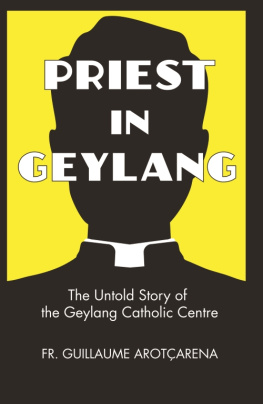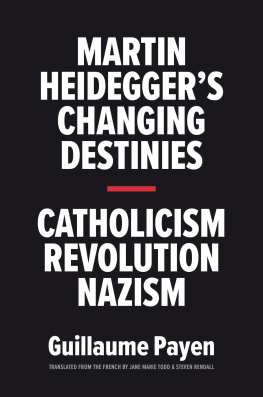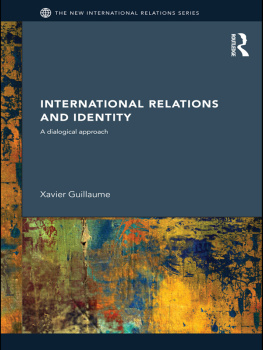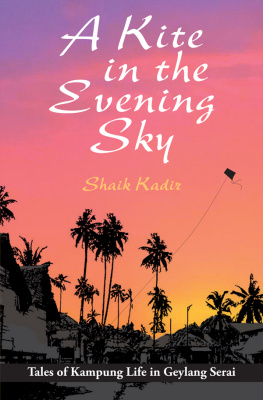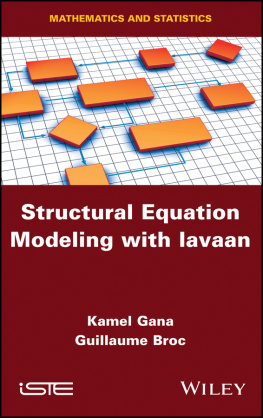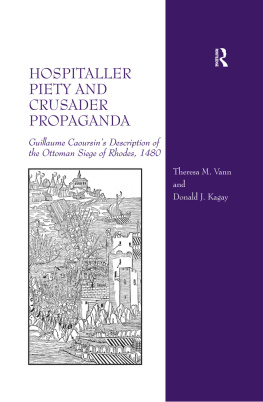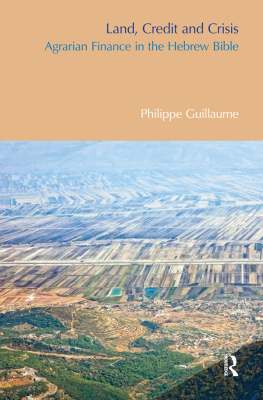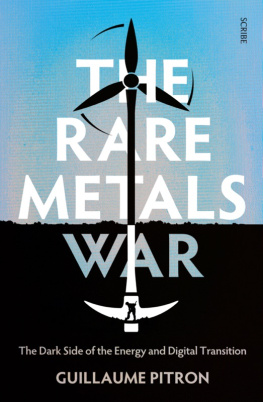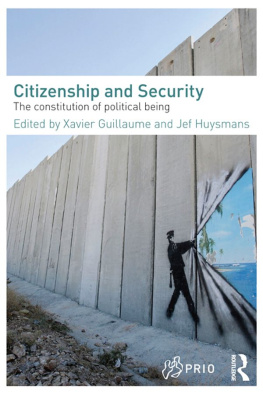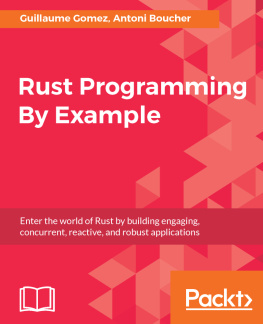Guillaume Arotçarena - Priest in Geylang
Here you can read online Guillaume Arotçarena - Priest in Geylang full text of the book (entire story) in english for free. Download pdf and epub, get meaning, cover and reviews about this ebook. year: 2019, genre: Politics. Description of the work, (preface) as well as reviews are available. Best literature library LitArk.com created for fans of good reading and offers a wide selection of genres:
Romance novel
Science fiction
Adventure
Detective
Science
History
Home and family
Prose
Art
Politics
Computer
Non-fiction
Religion
Business
Children
Humor
Choose a favorite category and find really read worthwhile books. Enjoy immersion in the world of imagination, feel the emotions of the characters or learn something new for yourself, make an fascinating discovery.
- Book:Priest in Geylang
- Author:
- Genre:
- Year:2019
- Rating:3 / 5
- Favourites:Add to favourites
- Your mark:
- 60
- 1
- 2
- 3
- 4
- 5
Priest in Geylang: summary, description and annotation
We offer to read an annotation, description, summary or preface (depends on what the author of the book "Priest in Geylang" wrote himself). If you haven't found the necessary information about the book — write in the comments, we will try to find it.
Priest in Geylang — read online for free the complete book (whole text) full work
Below is the text of the book, divided by pages. System saving the place of the last page read, allows you to conveniently read the book "Priest in Geylang" online for free, without having to search again every time where you left off. Put a bookmark, and you can go to the page where you finished reading at any time.
Font size:
Interval:
Bookmark:

Priest in Geylang: The Untold Story of the Geylang Catholic Centre
Guillaume Arotarena, 2015
English edition first published under the imprint Ethos Books
by Pagesetters Services Pte Ltd
28 Sin Ming Lane #06-131 Midview City
Singapore 573972
www.ethosbooks.com.sg | www.facebook.com/ethosbooks
The original edition in French was published in November 2013
by Les Indes Savantes Editions under the title: Singapour vu den bas.
All rights reserved. Except for the quotation of short passages for the purpose of criticism and review, no part of this publication may be reproduced, stored in retrieval system, or transmitted, in any form or by any means, electronic, mechanical, photocopying, recording or otherwise, without the prior written permission of the publisher.
First translated from French into English by Jacques and Laura Troquier
Cover design by Benedicta Jennifer Foo
First printing January 2015
Second printing March 2015 by Ho Printing Singapore
National Library Board, Singapore Cataloguing-in-Publication Data
Arotcarena, Guillaume, author.
Priest in Geylang : the untold story of the Geylang Catholic Centre / Guillaume Arotcarena. Singapore : Ethos Books, [2015]
pages cm
ISBN : 978-981-09-3678-5 (paperback) 978-981-14-0712-3 (e-book)
1. Geylang Catholic Centre. 2. Foreign workers Services for Singapore. 3. Church work with migrant labor Catholic Church. I. Title.
BX2347.8.I46
361.75095957 -- dc23
OCN 898011502

Blessed are you who are poor
For yours is the Kingdom of God...
...Blessed are you when people hate you,
excommunicate you,
and shame you and cast out your name as evil
because of the Son of Man
Luke 6: 20-22
The comment of an old colleague, now deceased, comes to my mind. He was participating in a diocesan retreat for Singapore priests in the early 1980s which I also attended. It so happened that he was seated next to me. The speaker was an American priest specialising in transactional psychology or something like that. It was a very popular subject at that time. He was telling us how he had been traumatised as a child when his father punished him with one lash of his belt. From that he drew definitive theories which he presented as profound with an air of exaltation fitting for a man ready to step on uncharted territory. He still had not realised that delving deep into the self, one will only find more of ones own self.
We can break away from this impasse only after we have encountered the other. That mans approaches were to real spirituality more or less the equivalent of what the units of psychological support, mobilised on every occasion nowadays, are to a genuine sense of brotherhood and human solidarity practised every day and tested over time; they are but an ersatz which merely points to the current trend to medicalise everything. We could say the same thing of the pathetic white walks held after some dramatic deaths have occurred, as if these needed to go on TV to become real. These rallies, unknown to their participants, serve to hide the exacerbated individualism and narcissism prevalent in modern society, the loss of shared values and structures in our communities and the false pretences we entertain in our relations with the tragic realities of life and death. This undoubtedly should be related to the fact that the symbolic spaces of the sacredthose of the churches or the templeshave been forsaken while new community sacred spaces are yet to appear. Perhaps we should reinvent the symbolic circle of the cromlech so as to rediscover the circle! Which brings us back to the disarming naivety of a cleric who had probably lived a rather protected life, from his native farm in the Mid-West to his convent after some years in the seminary, and who was buying himself some existential shivers at no cost at all.
He was the perfect illustration of the old Chinese saying: shao jian duo guai , which means, He who has not seen much is surprised by everything. My old colleague and neighbour at the retreat leaned sideways, quelling with much difficulty a sarcastic smile, and whispered in my ear: Can you believe that? We are fortunate that he was never imprisoned, or subjected to popular judgement in China, as I have been! He would lead us into real spiritual agony! He was being cynical, and with reason. It is imperative that things be put in their proper perspective, whether it be experiences or personal wounds. There are much more important things than the little stories which punctuated my daily life in Singapore between 1980 and 1988.
So, whats the use? Who will be interested? What can this mini outpouring serve? Reminiscing about your past also makes you vulnerable. Do I really want this? It is quite possible that I am too proud to take that risk. The question has never left me. And yet, I told myself: Why not? Why not pay tribute, in a modest way, to the little ones according to the Gospel, whom I have rubbed shoulders with, and who have taught me so many things? Why not talk about all those people who have worked with me because they dreamt of a better society: more just, more fraternal, nearer to the evangelical ideal, who in some cases have been punished for their generosity by being imprisoned, ill-treated, and at the same time reproached by the self righteous, in the Church and elsewhere?
I dedicate this modest piece of work to Sok Choo (deceased), Aileen (deceased), Bee Leng, Lawrence, Patrick, Jocelyn, Soh Lung, Marilyn, Larry (deceased), Anthony, Suresh, Francis, Guat Hua, Hoe Fang, Wai Han, Roselyn, Vincent, Robert, Thomas (deceased), John, Martin, Richard (deceased), Joseph, Tee Seng, Ah Meng, Ronald, Jude, Lawson, Gary, Helen, Ben, Maria, Grace, Khoon Liang, Josephine, and all the others who have worked at the Geylang Catholic Centre (1980-1987), which later became the Catholic Centre for Foreign Workers, putting all their heart in this venture during all those years, and who have shared my life, my joys and my pains.
Along the way, why not try to paint with light strokes of the brush what Singapore was like in those years, Singapore seen at the grassroots so to say, what the Catholic Church was like, and how among ordinary people and Christians alike, unbounded generosity mingled with a certain kind of fearful fatalism, the same I had experienced, encountering situations over which we finally had little control? In the Singapore lingo, this attitude is defined as kiasu, in the Hokkien dialect. It is so widespread and well-recognised that it has given rise to a fairly substantial body of local literature of self-mockery. Because, contrary to what is often thought, Singaporeans are not averse to making fun of themselves.
Font size:
Interval:
Bookmark:
Similar books «Priest in Geylang»
Look at similar books to Priest in Geylang. We have selected literature similar in name and meaning in the hope of providing readers with more options to find new, interesting, not yet read works.
Discussion, reviews of the book Priest in Geylang and just readers' own opinions. Leave your comments, write what you think about the work, its meaning or the main characters. Specify what exactly you liked and what you didn't like, and why you think so.

